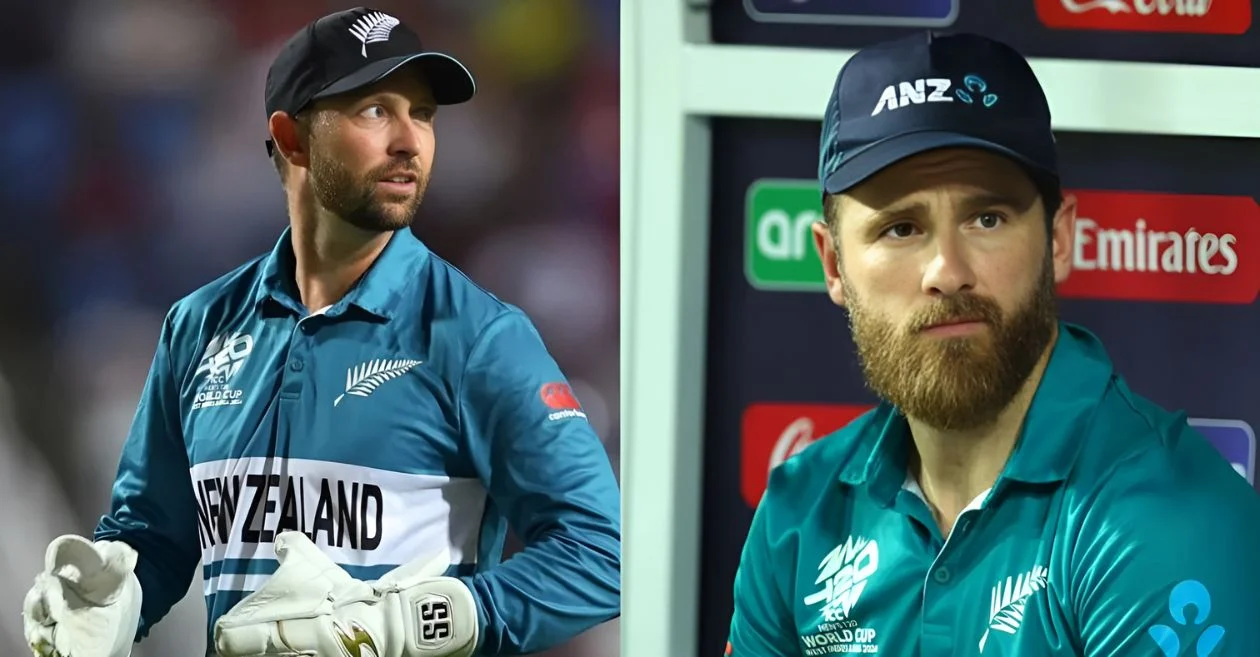The winds of change are sweeping through New Zealand cricket, and nowhere is it more evident than in the Black Caps’ squad for the upcoming T20I tri-series in Zimbabwe. With the inclusion of fresh faces, the absence of stalwarts, and a new head coach at the helm, New Zealand’s cricketing setup is beginning to reflect a significant generational and strategic shift. One of the most striking developments—perhaps symbolic of this evolution—is the omission of Devon Conway from the squad.
Once regarded as one of the few all-format mainstays of New Zealand cricket, Conway’s absence is more than a selection call—it may very well be the curtain call for his T20I career.
Devon Conway: A Fall from the Summit
At 33, Devon Conway’s exclusion has triggered surprise and, in some quarters, a sense of inevitability. Just two years ago, he was the glue holding together New Zealand’s top order across formats. But international cricket is a brutal arena, and recent numbers paint a clear picture of decline.
Since January 2023, Conway has featured in 12 T20 Internationals, amassing just 188 runs at an average of 15.66 and a strike rate of 104.03. In the format where explosive intent and adaptability are prized, Conway’s classical approach looked increasingly out of sync. Heading into the T20 World Cup 2024, his struggles continued—scores of 8 and 5 in the group stage mirrored New Zealand’s shock early exit.
Despite moderate outings in the SA20 and Indian Premier League (IPL) 2025, the selectors have now decided to move forward without him. New head coach Rob Walter, brought in to reimagine New Zealand cricket across formats, seems intent on a forward-looking approach with an eye on the 2026 T20 World Cup in India and Sri Lanka.
For Conway, this might signal the end of his T20I road.
A New Leadership Era: Santner Steps In, Williamson Steps Away
Kane Williamson, the long-serving captain and the face of New Zealand’s golden era, has made himself unavailable for the series. While the reasons cited are personal commitments and concurrent franchise duties in England, his absence hints at a gradual phase-out from the shortest format.
In his place, left-arm spinner Mitchell Santner will lead the squad. A seasoned campaigner, Santner is no stranger to the leadership role and brings calm tactical intelligence to a youthful unit. Under him, the squad will be expected to adapt to Rob Walter’s aggressive and dynamic style.
Also absent from the squad are key senior bowlers Lockie Ferguson—rested to manage workload—and Kyle Jamieson, who is awaiting the birth of his first child. These withdrawals, though temporary, have paved the way for a fresher, younger group to step into the spotlight.
Welcome Back: The Return of Adam Milne and Matt Henry
One of the most anticipated comebacks in this squad is that of fast bowler Adam Milne, who returns after recovering from ankle surgery. Milne has been in red-hot form, recently snaring nine wickets in four games for Texas Super Kings in the ongoing Major League Cricket (MLC) tournament. His pace and wicket-taking ability make him a vital asset in subcontinental conditions, where New Zealand will play the 2026 T20 World Cup.
Joining him in the comeback trail is Matt Henry, who missed the ICC Champions Trophy 2025 due to a shoulder injury. Known for his ability to strike with the new ball and bowl smartly at the death, Henry will look to reclaim his spot among New Zealand’s frontline seamers.
Their returns add valuable experience to an otherwise youthful pace battery.
Eyes on the Future: Bevon Jacobs and Zak Foulkes Step Up
Among the most exciting selections is Bevon Jacobs, the 22-year-old uncapped batter who has quickly risen through the domestic ranks. After a breakout season for Auckland and an IPL 2025 stint with Mumbai Indians, Jacobs brings youthful exuberance and an aggressive batting style tailor-made for T20s.
Jacobs retained his spot after making an impression during the December 2024 T20I series against Sri Lanka. A top-order aggressor with the ability to take down spin and pace alike, he’s the kind of fearless batter that New Zealand hopes to build around.
Another fresh name is Zak Foulkes, a promising all-rounder who adds depth to the squad with his handy medium pace and lower-order hitting. His domestic performances and strong showing in the New Zealand A setup caught the attention of the selectors, and this tour presents him with the ideal platform to announce himself on the world stage.
New Zealand’s T20I Squad for Zimbabwe Tri-Nation Series: A Balance of Experience and Promise
-
Mitchell Santner (Captain)
-
Finn Allen
-
Tim Seifert
-
Rachin Ravindra
-
Daryl Mitchell
-
Mark Chapman
-
Glenn Phillips
-
Bevon Jacobs
-
Michael Bracewell
-
Matt Henry
-
Adam Milne
-
Ish Sodhi
-
Jacob Duffy
-
Zak Foulkes
-
Will O’Rourke
This 15-member squad reflects a careful mix of battle-hardened campaigners and emerging talents. Players like Rachin Ravindra and Glenn Phillips, already being groomed for leadership roles, will shoulder much of the batting responsibility. Tim Seifert, in red-hot form domestically, could push for a long-term role behind the stumps. Finn Allen, known for his ultra-aggressive starts, will aim for consistency.
The bowling group, led by Henry and Milne, is complemented by the guile of Ish Sodhi, the left-arm variety of Santner, and the youthful zest of Will O’Rourke and Jacob Duffy. The variety across pace and spin options reflects a clear intention to test combinations and backups ahead of major ICC tournaments.
The Rob Walter Blueprint: Building Towards 2026
Appointed earlier this year as New Zealand’s head coach across formats, Rob Walter is known for his work ethic, high-performance mindset, and ability to nurture young talent. After a successful stint in South African domestic cricket and involvement with T20 franchises, Walter brings a modern, analytical approach.
This tri-series marks Walter’s first major assignment, and all eyes will be on the kind of cricket the Black Caps will play under his watch. Known for emphasizing aggressive fielding, flexible batting orders, and match-ups-based bowling plans, Walter’s vision aligns with global T20 trends.
The presence of experienced assistants like Luke Ronchi, Jacob Oram, and James Foster ensures that player development and strategic clarity remain focal points.
Walter’s task is not just short-term results—it’s also about identifying who can take the Black Caps into the 2026 T20 World Cup and beyond.
Scheduling Crossroads: Managing Franchise Commitments
With the MLC final scheduled for July 14, just two days before New Zealand’s opening match against South Africa in Harare, NZC has kept the door open for late replacements. Players involved in MLC or The Hundred may face travel constraints, and Walter’s team is prepared for such eventualities.
This signals a broader shift in international cricket—a tacit acceptance of franchise overlaps and the need for squads to be adaptable.
T20Is Followed by Test Cricket: An All-Format Reset
After the T20I tri-series, the New Zealand team will remain in Zimbabwe for a two-match Test series in Bulawayo, indicating a packed international schedule. This continuation from white-ball to red-ball cricket offers the coaching staff an opportunity to evaluate fitness, form, and adaptability across formats.
It also highlights the strategic importance of Zimbabwe as a testing ground—not just for experimentation but for execution.
What’s at Stake: More Than Just a Series
While on the surface this may appear to be a minor tri-series involving Zimbabwe and South Africa, for New Zealand, it is a high-stakes exercise in renewal. The selection decisions signal that no position is permanent, and performances—not reputations—will guide the road ahead.
Conway’s exclusion, Williamson’s absence, and the inclusion of players like Jacobs and Foulkes are clear indicators that New Zealand cricket is preparing for a generational pivot. Walter’s era will not just be about changing personnel—it will be about reshaping mindset, execution, and ambition.
Final Thoughts
Devon Conway’s fall from the T20I squad may dominate early headlines, but the real story is about what comes next. The Black Caps are not clinging to the past. They are turning the page.
As Mitchell Santner prepares to lead a recharged unit into Harare, fans should brace themselves for an exciting chapter in New Zealand’s cricketing journey. Whether it results in wins or growing pains, one thing is clear: this team is not just playing matches—it is building a future.
First Match of the Tri-Series
🗓 July 16, 2025
🏟 Harare Sports Club
🆚 New Zealand vs South Africa
Let the new era begin.
Please check for information on the best betting sites in India – https://selectory.org/best-betting-sites/
Related posts:
 Horse Racing Betting: Tips and Strategies for Winning Wagers
Horse Racing Betting: Tips and Strategies for Winning Wagers
 BetOnline Betting: Your Ultimate Guide to Online Sports Betting
BetOnline Betting: Your Ultimate Guide to Online Sports Betting
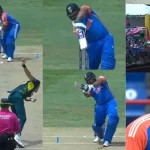 T20 World Cup 2024 : Rohit Sharma powerfully thrashes Mitchell Starc in a 29-run over during AUS vs IND game
T20 World Cup 2024 : Rohit Sharma powerfully thrashes Mitchell Starc in a 29-run over during AUS vs IND game
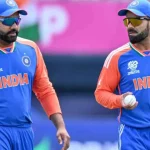 SL vs IND: Rohit Sharma, Virat Kohli to skip upcoming ODIs, Hardik Pandya or KL Rahul to lead Team India
SL vs IND: Rohit Sharma, Virat Kohli to skip upcoming ODIs, Hardik Pandya or KL Rahul to lead Team India
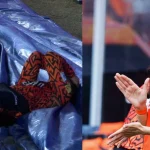 Will Ishan Kishan feature against LSG? Here’s an update on Kavya Maran’s SRH explosive batter
Will Ishan Kishan feature against LSG? Here’s an update on Kavya Maran’s SRH explosive batter
 Sydney Sixers sign Virat Kohli for next two BBL seasons? Here’s the truth
Sydney Sixers sign Virat Kohli for next two BBL seasons? Here’s the truth
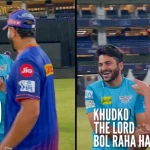 IPL 2025: Rohit Sharma trolls Shardul Thakur for ‘Lord’ nickname
IPL 2025: Rohit Sharma trolls Shardul Thakur for ‘Lord’ nickname
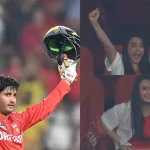 Preity Zinta celebrates in joy after Priyansh Arya’s maiden ton in PBKS vs CSK match at IPL 2025
Preity Zinta celebrates in joy after Priyansh Arya’s maiden ton in PBKS vs CSK match at IPL 2025
 David Warner’s IPL and PSL salary: A head-to-head comparison
David Warner’s IPL and PSL salary: A head-to-head comparison
 Virat Kohli shows photos of his kids to Preity Zinta; her reaction goes viral
Virat Kohli shows photos of his kids to Preity Zinta; her reaction goes viral
 IPL 2025: Preity Zinta destroys Punjab Kings hater with a savage comeback
IPL 2025: Preity Zinta destroys Punjab Kings hater with a savage comeback
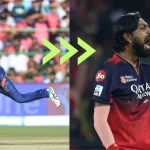 IPL 2025: Players who played for both Lucknow Super Giants and Royal Challengers Bengaluru
IPL 2025: Players who played for both Lucknow Super Giants and Royal Challengers Bengaluru
 5 players to watch out for in ENG vs ZIM one-off Test ft. Harry Brook
5 players to watch out for in ENG vs ZIM one-off Test ft. Harry Brook
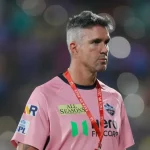 Kevin Pietersen picks ‘two gems’ from India’s batting lineup ahead of England Tests
Kevin Pietersen picks ‘two gems’ from India’s batting lineup ahead of England Tests
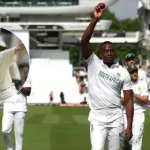 SA vs AUS: Kagiso Rabada overtakes Allan Donald to achieve massive milestone during WTC 2025 final
SA vs AUS: Kagiso Rabada overtakes Allan Donald to achieve massive milestone during WTC 2025 final
